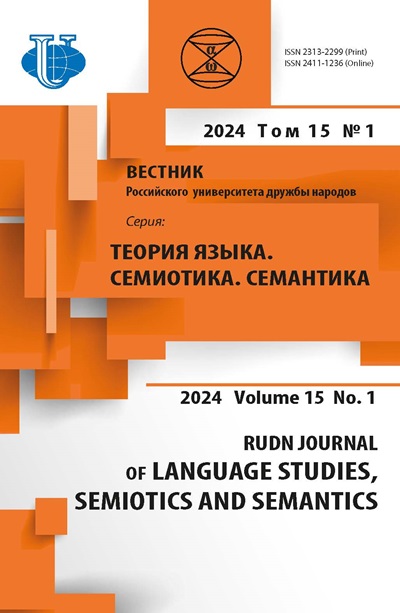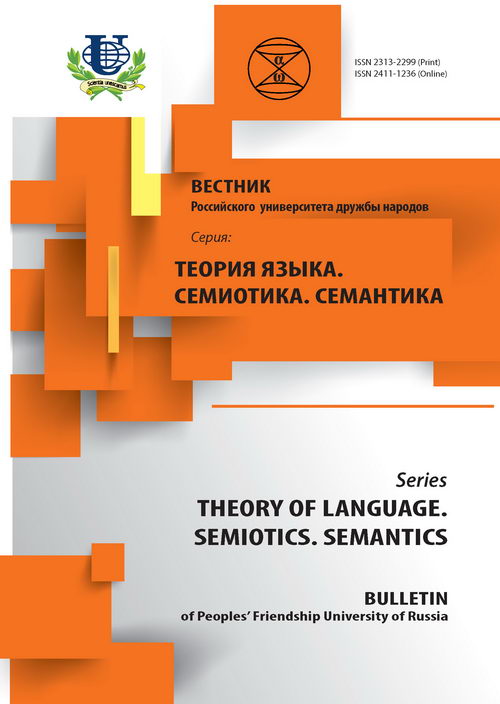Parallelism as a Modelling Configuration of Event-and-Temporal Meanings of Prepositions (a study of French and Russian languages)
- Authors: Chernyshev AB1
-
Affiliations:
- City Scientific-Research Social Fund “Language Environment”
- Issue: No 4 (2015)
- Pages: 158-169
- Section: Articles
- URL: https://journals.rudn.ru/semiotics-semantics/article/view/7569
Cite item
Full Text
Abstract
The article represents a comparative analysis of event-temporal meanings of the French preposition à and Russian preposition pri . The event-temporal meanings are described as a segment with a configuration “parallelism” as a variety of the segment. The denotative segment being both a term stipulated in a theoretical section of the paper, and a notion associated with an area of the built up scheme shall be applied as a method to reveal cognitive models of prepositions. It presents a novelty and theoretical value in the research. Beyond its semantic configuration, the parallelism is associated with the modeled aspect of time as an ontological category. In the paper the conclusion is made about semantic similarity of the prepositions under the analyzed segment. While cognitive models of prepositions vary, their configurations can be completely similar.
Keywords
About the authors
A B Chernyshev
City Scientific-Research Social Fund “Language Environment”
Email: alexeich_78@mail.ru
References













